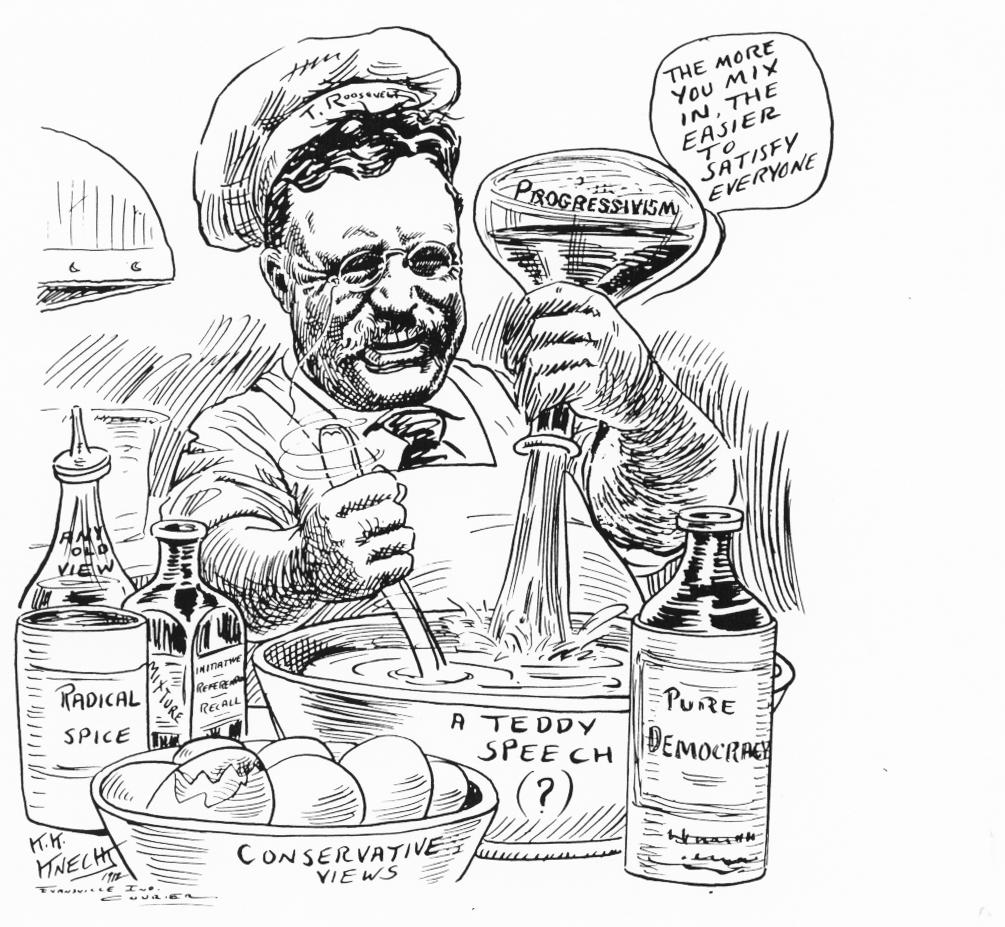Trump Isn't Our First 'Say Anything' Candidate

Of all the weirdest reasons that people support Donald Trump for president is the overwhelming concurrence of supporters that they love the fact that he 'speaks his mind.'
In most political circumstances, good statesmanship comes from eloquence and compromise, not bellicose rhetoric -- being plain-spoken usually doesn't get you very far as a politician.
Too often we forget that some of our most beloved presidents often had the worst characteristics -- characteristics like Teddy Roosevelt's 'say anything' style of campaigning that was occasionally made fun of in newspapers like this 1912 cartoon in the Evansville Courier:
We tend to remember Teddy Roosevelt for his 'speak softly and carry a big stick' foreign policy, but in reality, he tended to be a pompous loud-mouth, often having to back up his outward thoughts with his fists.
Long before mixed-martial arts were popular in America, Roosevelt practiced a variety of judo, kendo, jiu-jitsu, and boxing while in the White House. He was brash, but people loved him for it and his outward image of toughness.
And his style worked. Regardless of modern political ilk, Roosevelt is often chosen as one of the greatest presidents to have ever served.
But could this be, at least in part, due to the truth of this political cartoon? Was his popularity formed because he really was 'all things to all people?'
When examining the Republican Party in the Progressive Era, from 1900-1912, there was a lot of turmoil within the party. Various sides couldn't quite agree on any number of ideas, from traditional political concepts to the progressive ideals that were being forced into the political spotlight.
So bad was this schism that Roosevelt would eventually become a sore-loser candidate in 1912, creating the Progressive Party after failing to secure the Republican nomination for a 3rd term in office (he wouldn't have even been eligible to run under the 22nd Amendment, later adopted in 1951).
Like the possible schisms brewing in today's Republican (and even Democratic) Party, a schism usually only ensures one thing: a loss at the polls.
While the Republicans rebuilt their brand, Democrats solidly won national contests, striping the Republicans of control of the White House and Congress.
But what emerged from the rubble was a party that looked and functioned much like the Republican Party of the rest of the 20th century, focusing on smaller government, less regulations, and lower taxes.
So which came first, the 'say anything' nature of the Republican's last great candidate before the schism, or the beginnings of the schism itself driving the need for a 'say anything' president?
That seems to be the impossible chicken-and-egg question.
But in today's political climate, a Republican schism seems all too likely. Coupled with Donald Trump's 'say anything' style of campaigning, it could very well end up a disaster like in 1912, where a total rebranding of the Republican Party becomes inevitable.
Photo Credit: a katz / Shutterstock.com





